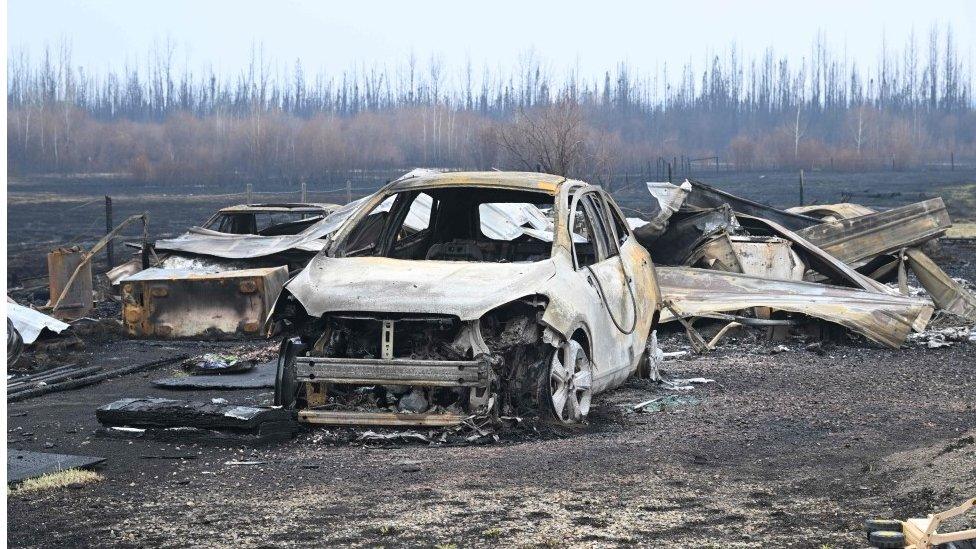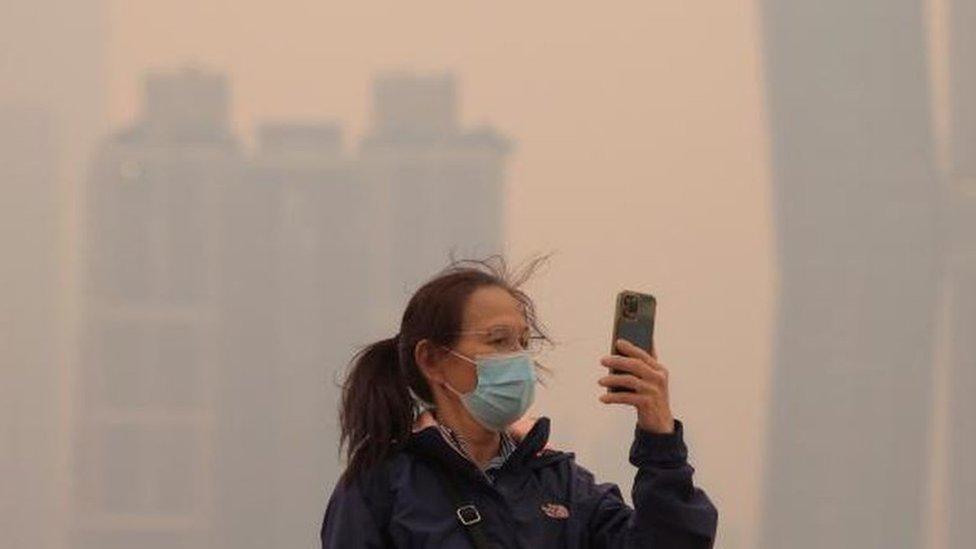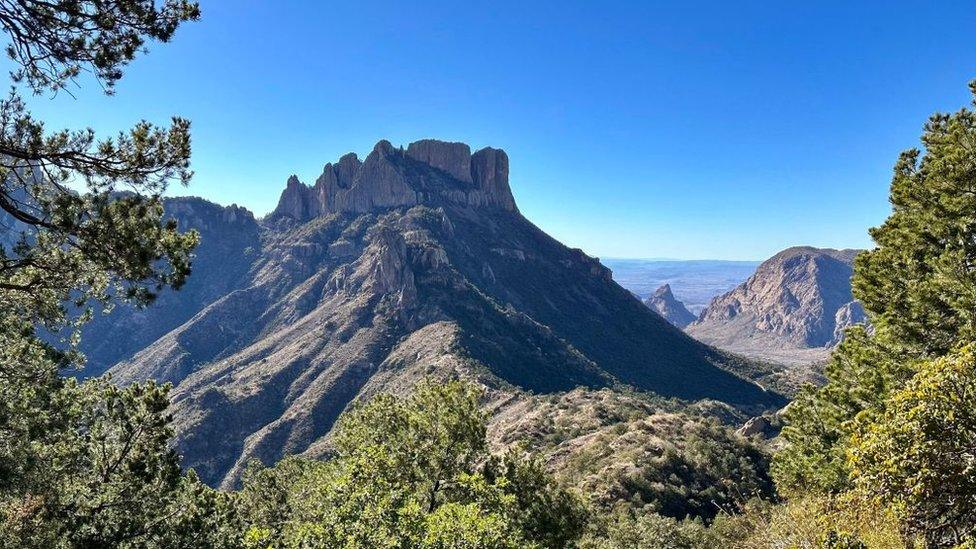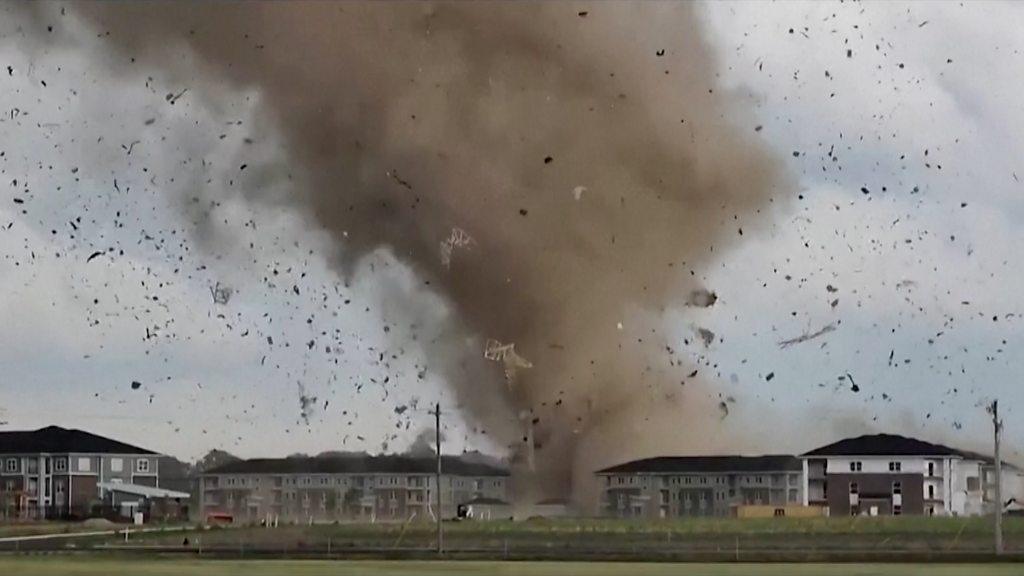Canada wildfires spark air quality alerts in Chicago and Milwaukee
- Published

Heavy smoke from wildfires has prompted air quality warnings in midwestern US cities such as Chicago, as well as parts of Canada.
The outdoor air quality registered among the world's worst on Tuesday, with a visible haze and burning smell lingering over the region.
Smoke continues to drift south and east across North America in waves.
The Canadian Interagency Forest Fire Centre has said this year is the worst wildfire season on record.
Cities including Chicago and Milwaukee, as well as parts of Michigan and Ontario, registered air quality index levels in the 200s on a 500-point scale.
Those are numbers considered "very unhealthy", although lower than the levels seen earlier this month, which breached 400 in New York and other parts of the northeast.
Health authorities said that groups including children, the elderly and people with respiratory problems should limit outdoor activities when air quality is poor.
Chicago school officials held summer programmes indoors on Tuesday, while in New York, the city mayor warned people to expect "worse air quality" starting on Wednesday.
The smoke hitting the US Midwest on Tuesday is forecast to continue to drift to the south and east over the next few days, covering most of the province of Ontario before reaching the east coast.
New York Governor Kathy Hochul said in a news conference on Tuesday that "air quality is deteriorating very quickly in our state" and warned pollution levels will worsen throughout the week but are not forecast to be as bad as they were earlier this month.
She noted that many children are currently at summer camps, which are shifting plans to keep children indoors as the smoke hits.
Canadian fire authorities say nearly 500 fires are still burning out of nearly 3,000 recorded so far this season. A total of 7.7 million hectares (30,000 square miles) - an area roughly the size of South Carolina - has already been burned.
The fires have released a record 160 million tonnes of carbon into the atmosphere, according to the European Union's Copernicus Atmospheric Monitoring Service, which announced that the smoke has begun to drift into parts of Europe.
- Published8 June 2023

- Published30 June 2023

- Published26 June 2023

- Published26 June 2023
